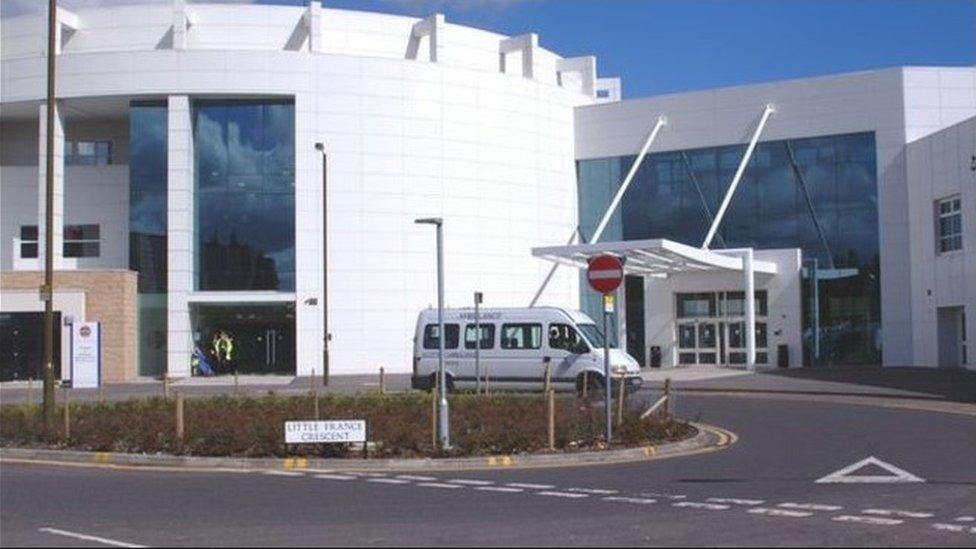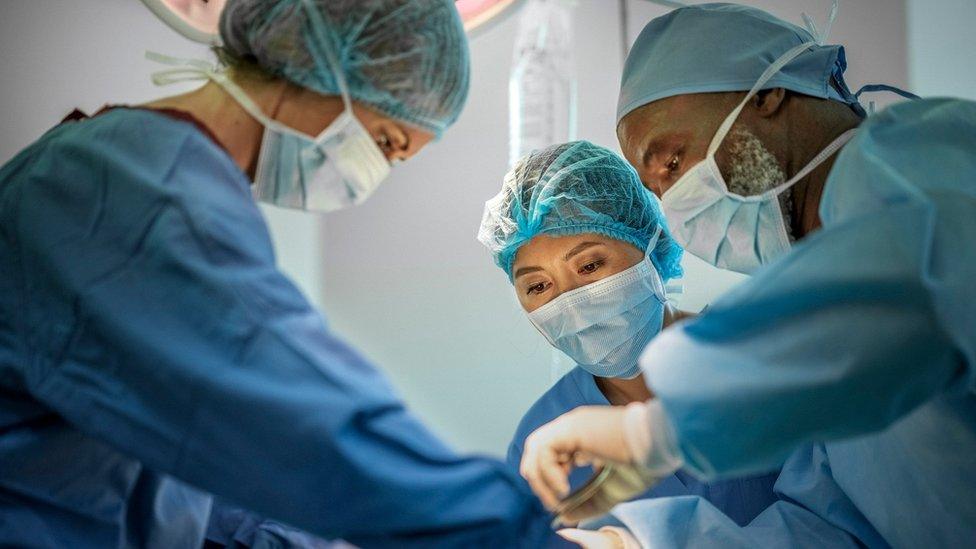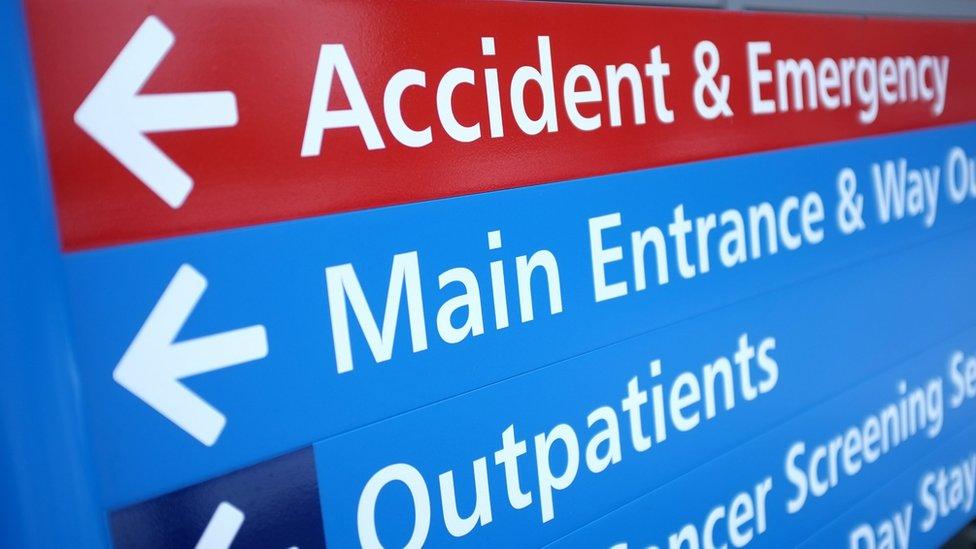Deaths linked to heart surgery infections at Edinburgh hospital
- Published

NHS Lothian has written to nearly 200 patients who underwent heart surgery in the last six months to warn them of a potentially deadly infection risk.
The move comes after a review found six patients who were operated on had contracted an infection.
NHS Lothian said it is thought the infections may have been acquired during surgery and that "a number" of those patients later died.
However, the health board refused to reveal how many deaths were involved.
Health officials have now written to 186 patients operated on at the Royal Infirmary of Edinburgh in the last six months to warn them of the potential risk of an unusual strain of heart valve infection known as endocarditis.
The fungal mould infection can take up to six months to materialise and patients are being advised of the symptoms.
As a precaution, four operations planned for this week at the hospital have been cancelled to allow for specialist cleaning and disinfection of the theatres.
A number of hospitals across Scotland have been dealing with infections which have led to patients dying in recent months, including Glasgow's Queen Elizabeth University Hospital, where a 10-year-old boy contracted the Cryptococcus infection, related to pigeon droppings.
'Low risk'
Prof Alex McMahon, executive lead for infection control for NHS Lothian, said: "We extend our sincere apologies and deepest condolences to the families of the patients who died, all of whom were informed at the time of their treatment that they had an unusual and difficult-to-treat infection.
"Many patients receiving this type of surgery are already very ill and vulnerable to infection so we place the highest importance on a stringent infection prevention and control regime. "
He added: "We have contacted patients purely as a precaution.
"Although this risk is very low and we do not anticipate any more cases, we know that it can take up to six months for these infections to materialise."

Notification letters have been sent to 186 patients about the potential infection risk
Endocarditis occurs in 0.5% of patients per year, and usually the source is the patient's own body.
Medications similar to antibiotics are available to treat the infection but can have limited impact on patients who are already very ill.
'People will be shocked'
Jane Claire Judson, chief executive of Chest Heart and Stroke Scotland, said: "This is concerning. Families have lost loved ones and people will be shocked and worried when they receive these letters. They will need reassurance.
"NHS Lothian is one of the national centres for this kind of surgery, so it's important that any people beyond Lothian are also given the support they need."
"If you don't feel well you should go straight to your GP - and bring your letter with you to make sure you can go through any concerns you have."
NHS Lothian said it convened an incident management team after a case of endocarditis was reported and they looked through the infection records of thousands of patients who had many different types of surgery carried out since the beginning of 2015.
The team found that six patients who underwent cardiothoracic surgery over a period of 18 months where affected by what the health board described as "unusual infections caused by micro organisms commonly found in the environment".
A number of those patients later died but the board refused to say how many on "patient confidentiality" grounds.
No cases were found prior to March 2017 and there have been no known cases in patients operated on since November 2018.
- Published31 January 2019
